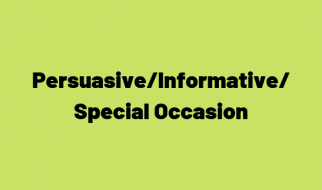I was interested in seeing 1408 when it first came out over ten years ago, but I didn?t want to get strung along for a Stephen King ending: psychological misdirection and death.
Recently the film kept nagging at me, and I decided to spoil the ending to see if I was willing to put up with the horror. Surprised by what I found out, I was now more eager than ever to see 1408.
I soonlearned, however, that the theatrical version, whose ending was added after test-audiences disliked the original ending (now restored in the ubiquitous Director?s Cut), was frustratingly difficult to locate. I used Netflix Japan to stream the theatrical version, which has???in my opinion???the only ending worth seeing. This version/ending is also available on DVD, but not on the Blu-ray release or digital retailers. (I recently requested that Vudu add 1408: Theatrical Version to their available movies.)
John Cusack plays Mike Enslin, an author specializing in demystifying haunted locales by visiting and recording his experiences at these sites. Early in the film, we realize that Enslin has no belief in the paranormal. We also learn, through gradual revelations in beautifully nuanced scenes, that there are things troubling and repressed about his past.
One of the best examples of this, early in the film, is a bookstore book signing, whose sparse attendance nevertheless includes a devoted Enslin fan, who summons the courage to ask Enslin about his first book ? a book representing a different genre and a more idealistic albeit unsuccessful author? a book, and an author, Enslin would rather not talk about.
After a near-fatal surfing accident, Mike Enslin receives a postcard from the NYC-based Dolphin Hotel with the handwritten warning, ?Don?t Enter 1408.? He chuckles at the cleverness of the number, since the sum of its digits equals 13, then becomes determined to not only visit the hotel, but to stay in the room which, he learns, has been off-limits for years.
Against the ardent dissuasion of the hotel manager (played by Samuel L. Jackson), who provides Enslin a book documenting the 56 deaths that occurred in room 1408 over the previous 95 years, Enslin stubbornly and incredulously insists on staying in the room ? intent on debunking yet another ?haunted? house.
This is where the fun begins.
The room, it suddenly seems, isn?t merely haunted by the troubled souls of its past; 1408 has a mind of its own ? including a wicked sense of humor. (In case some of you have yet to see this film, I?m going to spare you the details of Mike Enslin?s initial experiences in the hotel room ? and hopefully give you the chance to experience the gradual terror without spoilers.)
John Cusack?s acting is one of the key ingredients that made me feel like I was experiencing the surreal experience right along with Mike Enslin. (The year 2007???which gave us Grace Is Gone along with 1408???may be the pinnacle of Cusack?s career.) It?s hard to fathom such a dynamic performance created during the many scenes where he is the only actor! (Enslin?s writing routine of recording his observations by talking into a mini-cassette recorder is very useful here???and it?s essential to the film?s lost ending.)
One such scene occurs partway into his horrific experiences in 1408. After he opens the room?s minibar fridge, which appears to be a portal into the office of the hotel manager, Enslin has a heated exchange with Samuel L. Jackson?s character. Suddenly the illusion vanishes, Cusack?s character is left yelling at the bottles in the fridge, and he goes over the edge of sanity with an intensity I?ve never seen any actor do before or since.
Speaking of hallucinations or altered perceptions, one symbolically meaningful illusion relates to Enslin?s faith. While in the hotel room, Mike Enslin sees past events in which he interacts with his family. Enslin sees his former self, who, although facing painful adversity and worry, speaks reassuringly to his family of faith and God. A later memory shows Enslin in the wake of tragedy, this time expressing his absence of faith. Consistent with this history, Mike Enslin initially dismisses the hotel room copy of the Bible. Later, facing life-threatening horrors and temptations (not the least of which is suicide), Enslin turns to the Bible in desperation. ?You win,? he says, as he clutches and frantically flips through the pages. Perhaps symbolic of the resulting emptiness of abandoning his faith (or of feeling abandoned by it), the pages are blank!
Mike Enslin?s experiences in room 1408, however, are not all illusion. (We wonder if this could be true as Enslin interacts with others outside the room, including desperate attempts at video calls from his laptop to reach his wife, whose brief comments suggest that the physical reality of room 1408 is likely very different from the psychological reality Enslin is experiencing.) This is the character?s key epiphany in the climax of his confrontation with the oppressive room, and his wife?s epiphany in the final seconds of the film? that is, the final seconds of the theatrical ending, which is now, as I said before, surprisingly difficult to find.
In my opinion, this ending is not only the most satisfying, it?s the conclusion that resonates best tonally ? not just with the first-person perspective (which most of the alternate endings, including the original director?s cut, abandon), but with the interplay of Enslin?s competing psychological, physical, and even metaphysical realities and non-realities. It is during this ending that the audience realizes that at least one very personal encounter in room 1408 was indeed real.
It is this encounter that suddenly brings Enslin?s demons (the personal issues and pain of his past) into overwhelming focus, connects the dots of his past, and explains the personalized horror he has faced in room 1408. Unlike the previous events in the room ? disturbing, life-threatening ? Enslin now confronts the source of his greatest fear, pain, and existential despair: the loss of his daughter! Cusack?s performance carries emotion of such potency and authenticity, it?s difficult to believe he has no personal experience as a father.
The genius of 1408 isn?t that the room is evil, but that Mike Enslin faces his personal demons here ? and, ultimately, during the climax of the story, experiences a transformation of his character and weaknesses. It?s beautiful and spiritual on so many levels, leaving you with so much to think about concerning faith, tragedy, grief, suicide, selfishness, family, death, even God.
For me, the final moments of the theatrical version make these themes and meanings stronger and more real ? because, unlike the ending of the director?s cut, which concludes in a morbid and supernatural fashion, calling into question the reality of the story, the theatrical ending reveals that part of Mike Enslin?s experience in 1408 was not only real objectively (which I said earlier)?but it saved him and changed him personally.
With such a meaningful and powerful ending, 1408?s theatrical cut is not only the best version of the film ? it?s now, perhaps fittingly, mysteriously and hauntingly hard to find.

